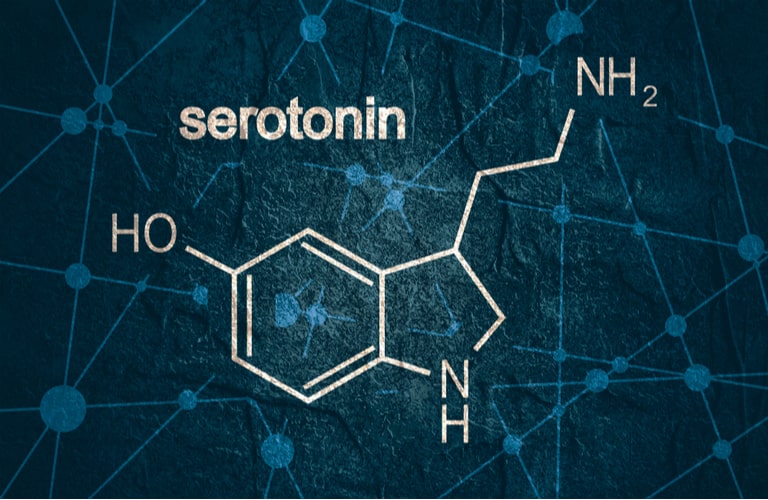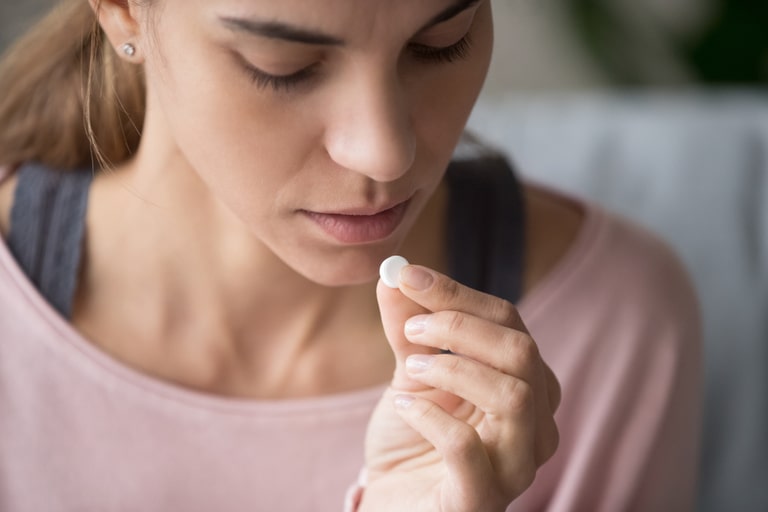By Gary L. Wenk, Ohio State University
Articles are intended for educational purposes only, and are no substitute for professional treatment. Please consult with a certified professional for patient treatment.
If you decided to read this post, then you are probably disappointed with the ability of your SSRI to produce relief from the symptoms of your depression. Why don’t we have better drugs for an illness that affects so many people? After all, depression has been called the common cold of mental illnesses: Almost everyone gets it at some time during their lives.
Today, psychiatrists overwhelmingly prescribe drugs that primarily manipulate one chemical in the brain—serotonin. Serotonin is a neurotransmitter. It is released from one neuron so that it can interact with another nearby neuron. Serotonin is produced from the dietary amino acid tryptophan that can be found in many different foods.

Most Americans get an adequate supply of tryptophan from their diet. You would have to have a very poor, or very unusual, diet to deplete your brain of the tryptophan it needs to make serotonin. Most of the tryptophan that appears in the blood after a typical meal will never enter the brain; rather, it will be utilized by one of the ten million or more serotonin neurons in your gut or by one of the trillions of platelets in your blood or by any one of your muscles.
In fact, far less than 1 percent of the tryptophan that you consume will ever reach your brain. Fortunately, the brain doesn’t need that much, and it is usually able to obtain all that it needs every day. Why does the availability of tryptophan matter?
Almost 25 years ago, a group of scientists designed an animal model of depression that is called the tryptophan depletion model. Essentially, laboratory animals (or humans in later studies) were fed a diet high in large neutral amino acids; this diet effectively reduces the influx of tryptophan into the brain.
The production of serotonin in the brain is reduced, and within only a few hours, the symptoms of depression and anxiety appear. These results were used to defend the decision to administer drugs that block the inactivation of serotonin; they are called selective serotonin reuptake inhibitors, or SSRIs.
One thing that has become obvious to neuroscientists is that our drugs are only as good as the models that we use to discover them. Today, we understand the neurochemistry of serotonin far better, and it is clear that the conclusions drawn from the tryptophan depletion model are flawed. The problem with the conclusions drawn from the tryptophan depletion model is that it explains nothing about the neural mechanisms that underlie the development of depression in people who are not tryptophan-depleted, which is virtually everyone.
The model has what scientists call face validity—it resembles the condition, but does not explain it correctly. The model lacks construct validity—its results do not represent actual underlying events. Essentially, this is the problem with the tryptophan depletion model—a depletion of serotonin does not underlie depression. Depletion of serotonin can cause depression; however, this is not proof that the cause of depression is actually due to the depletion of serotonin or reduced activity of serotonin neurons. Brain chemistry simply does not work that way.
Most psychiatrists, and lots of popular books, will tell you that SSRIs work because they enhance serotonin function. Is that a true statement? Let’s say that I depleted your brain of tryptophan at 9 a.m.; you will become depressed by noon.

I then give you some tryptophan to consume. Did the tryptophan relieve your depression? Yes, it did. Thus, providing precursors to serotonin only works if you have already depleted it. Next, let’s imagine that you take your SSRI at 9 a.m.; by noon, the SSRI is inside your brain and enhancing serotonin function. Are you still depressed? Yes, you are. Thus, simply enhancing serotonin acutely is not adequate.
One more example: Let’s say that you consume cocaine at 9 a.m.; by noon, the cocaine is blocking the reuptake of serotonin (and dopamine as well) in your brain. Are you depressed? No, you are not. For the duration of the action of cocaine at your serotonin synapses, you are not experiencing depression. I am not recommending cocaine for the treatment of depression; however, during the 1880s, cocaine was sold over the counter for the treatment of depression. It was very popular.
SSRIs take weeks to produce clinical benefits. During this time, the brain is making numerous biochemical adjustments. The number of serotonin receptors is increased, dopamine receptor signaling changes dramatically in some regions, norepinephrine release increases in other brain regions, inflammatory protein levels, particularly tumor necrosis factor-alpha, are reduced, BDNF levels increase, neurogenesis increases in the hippocampus, and so on.
The adaptation process by the brain is complex and involves many more molecules other than serotonin. Given the complexity of these changes and our poor understanding of what they mean, it is naïve to assume that the changes in serotonin are the only ones that matter. We need to take into account the key role of all of these systems.
Thanks to the conclusions drawn from the original tryptophan depletion studies, SSRI-based therapies have been common for the past few decades. The concept is logically appealing and simple to understand. It is also inadequate to explain such a complex disease and has not led to effective therapies.
The actual chemistry of depression, and serotonin’s role in it, is much more complicated. The fact that so many of our currently available treatments were based on such a flawed model explains why these drugs are considered only modestly effective, while at the same time, treatment resistance and recurrence of symptoms remain a significant problem. Overall, SSRIs are no more effective than those introduced over 50 years ago.
Unfortunately, about one-third of all depressed patients never respond to any therapy. The most common residual symptoms for these unlucky people are insomnia, fatigue, painful physical complaints, problems concentrating, and lack of interest in pleasurable activities. Medical science clearly needs to discover better therapies for this disorder that affects so many people around the world. We need better models.
Gary L. Wenk is Professor of Psychology & Neuroscience & Molecular Virology, Immunology and Medical Genetics at the Ohio State University and Medical Center. He is the author of “Your Brain on Food”
References
© Gary L. Wenk, Ph.D. Author of Your Brain on Food, 3rd Edition, 2019 (Oxford University Press)
Note: The views expressed in this article are the author/s, and not the position of Intellectual Dose, or iDose (its online publication). This article is republished with permission.



